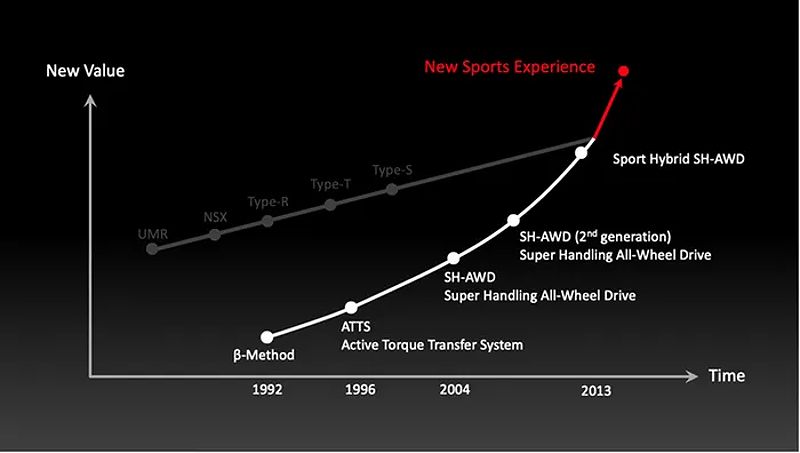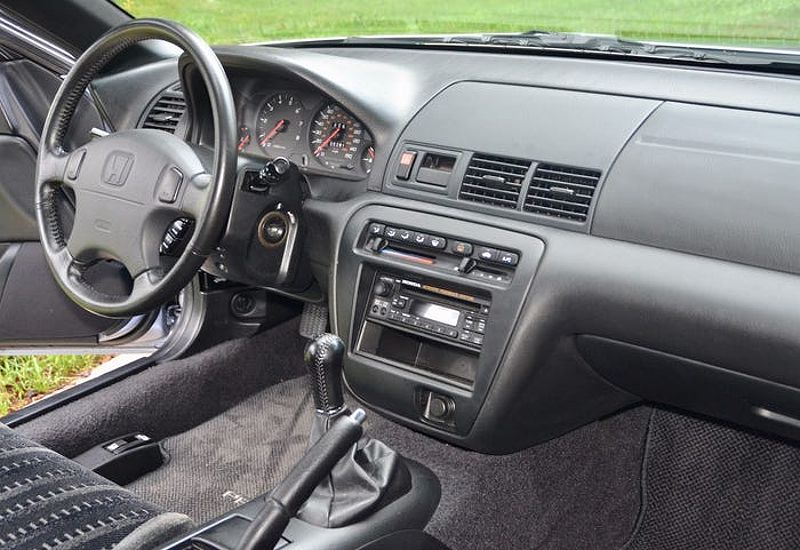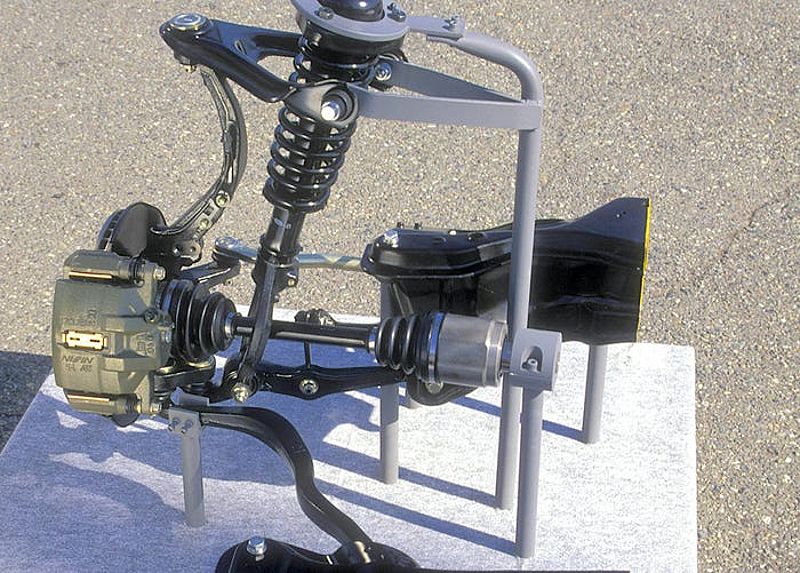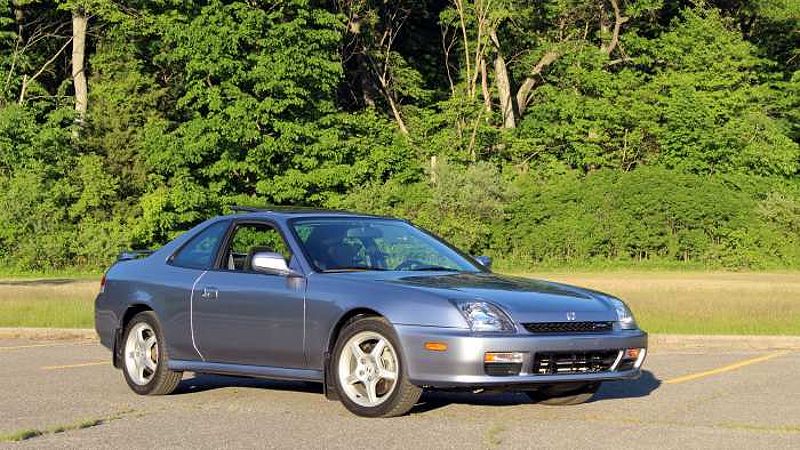I remember the first time I saw a 1999 Honda Prelude Coupe—its sleek lines and aggressive stance were unlike anything else on the road. But beneath the stylish exterior lies a car that, while capable and fun to drive, requires diligent maintenance. Finding a pristine example with flawless paint and a meticulously maintained engine bay can be challenging and expensive, but the reward for a mechanically sound car is a thrilling driving experience. This buyer’s guide examines the realities of owning this iconic sports car.
Performance and Handling: The VTEC Heart and Agile Chassis
At the heart of the 1999 Honda Prelude Coupe is the spirited 2.2L H22A4 VTEC engine, which produces a robust 200 horsepower at 7000 RPM and 156 lb-ft of torque. The engine’s variable valve timing technology contributes significantly to its power and efficiency across the rev range, allowing it to come alive above 5,200 RPM and provide an exhilarating driving experience that keeps enthusiasts engaged. While the VTEC engine is generally robust, it’s crucial to replace the timing belt every 105,000 miles to prevent catastrophic internal damage.
Real-world fuel economy figures often exceed expectations, with many owners reporting highway mileage upwards of 31 mpg, a testament to Honda’s engineering prowess. The Prelude is available with either a 5-speed manual transmission or a 4-speed automatic. The manual transmission is the preferred option for driving purists, offering a more dynamic and engaging experience, while the automatic serves as a convenient alternative for those who prioritize ease of use.
One of the standout features of the 1999 Honda Prelude Coupe is its remarkable handling capabilities. The sophisticated double-wishbone suspension provides a smooth ride and excellent grip, while the optional Active Torque Transfer System (ATTS) available on the Type SH model enhances cornering performance. This innovative system works by subtly braking the inside wheel during cornering, effectively transferring torque to the outside wheel for improved traction and reduced understeer. The effect of the ATTS system is most noticeable at higher speeds and in tighter corners, contributing significantly to the Type SH’s superior handling compared to the base model.

For those seeking to elevate their driving experience further, consider upgrading to high-performance tires. These enhancements can unlock the full potential of the Prelude’s already impressive handling characteristics, making it a joy to drive on both winding roads and racetracks.
Interior and Comfort: A Blend of Sport and Refinement
Step inside the 1999 Honda Prelude Coupe, and you’ll be greeted by an interior that reflects Honda’s commitment to quality and craftsmanship. The cabin features well-crafted materials, tight panel gaps, and a logically arranged dashboard that enhances the overall driving experience. The supportive seats are designed for comfort during long drives, though the low-slung seating position might feel unusual initially.
In terms of space, the front seats offer adequate legroom and headroom for average-sized occupants, while the rear seats are best suited for occasional passengers or extra cargo. The trunk space is practical for a sports coupe, allowing for weekend getaways without feeling cramped.
Standard features in the Prelude include a power sunroof, manual climate control, and a sound system equipped with “Acoustic Feedback” technology. While the audio system aims to enhance sound quality, some owners might prefer to upgrade to modern aftermarket options for better connectivity, such as Bluetooth and auxiliary inputs.

The attention to detail in the Prelude’s interior sets it apart from many contemporaries, providing a more premium feel. The soft-touch plastics, well-damped buttons, and refined finishes contribute to a cabin ambiance that feels both sporty and upscale, making it an enjoyable place to spend time behind the wheel.
Reliability, Maintenance, and Parts: Keeping Your Prelude Running
When considering the 1999 Honda Prelude Coupe, reliability is a key factor. Generally regarded as a dependable sports car, the Prelude benefits from Honda’s reputation for durability. However, regular maintenance is crucial to keep it running smoothly.
Common issues with the Prelude include age-related problems like suspension bushing wear, electrical gremlins, and potential problems with the automatic transmission (if equipped). These age-related issues can be costly to repair, so it’s essential to stay vigilant.
Routine maintenance tasks, including oil changes, fluid flushes, and transmission servicing, are critical for the Prelude’s longevity. For those with the 4-speed automatic transmission, regular fluid and filter changes are particularly important to prevent potential issues. Meanwhile, owners who opt for the 5-speed manual transmission can expect a more straightforward ownership experience, as long as they adhere to routine servicing.

Fortunately, parts availability for the 1999 Honda Prelude is relatively good, thanks to Honda producing over 60,000 units of this generation. While many parts are still available through online retailers like eBay, specialized Honda parts suppliers, and salvage yards, the cost of some components, particularly body panels, may be higher than for more common Honda models due to lower production numbers. On average, you can expect to spend between $500 and $800 annually on maintenance for a well-cared-for Prelude, depending on the work required.
Pricing and Market Value: Investing in a Classic
As the years go by, the 1999 Honda Prelude Coupe has emerged as a sought-after classic, with prices reflecting its growing desirability among collectors and enthusiasts. This trend is part of a broader resurgence of interest in 1990s Japanese sports cars, driven by nostalgia and a renewed appreciation for their unique styling and performance characteristics. Clean, low-mileage examples in excellent condition can command prices ranging from $15,000 to $25,000, particularly for the Type SH models, which often fetch a premium due to their advanced handling capabilities.

For those on a budget, vehicles with higher mileage or minor cosmetic flaws can typically be found in the $10,000 to $15,000 range. When negotiating a fair price, it’s essential to consider factors such as maintenance records, modifications, and the overall condition of the vehicle. It’s worth noting that a significant segment of the Prelude market consists of modified vehicles, and while these can enhance performance, they can also negatively impact reliability and resale value if not done professionally.
The Prelude’s market value has been steadily rising, as more enthusiasts recognize its unique combination of style, performance, and collectibility. This trend is likely to continue, making the 1999 Prelude Coupe an appealing investment for anyone looking for a classic sports car that may appreciate in value over time.
1999 Honda Prelude Coupe vs- The Competition
When compared to its contemporaries, the 1999 Honda Prelude Coupe stands out for its distinctive blend of performance, practicality, and style. In a head-to-head comparison with similar sports cars like the Acura Integra, Mazda MX-5 Miata, and Toyota Celica, the Prelude showcases several key differentiators.
While the Mazda Miata offers an exhilarating open-air driving experience, the Prelude counters with its more practical rear seats and trunk space. The Acura Integra may sport a more prestigious badge, but the Prelude delivers a more refined driving character that appeals to many enthusiasts. However, it’s important to note that the Prelude’s front-wheel-drive layout inherently limits its ultimate handling capabilities compared to rear-wheel-drive sports cars, and torque steer can be an issue under hard acceleration.
Key Comparisons:
| Feature | 1999 Honda Prelude Coupe | Mazda MX-5 Miata | Acura Integra | Toyota Celica |
|---|---|---|---|---|
| Engine Power | 200 hp | 133 hp | 140 hp | 140 hp |
| Transmission Options | 5-speed manual, 4-speed automatic | 5-speed manual | 5-speed manual | 5-speed manual |
| Handling | Excellent with ATTS | Exceptional | Good | Good |
| Rear Seat Space | Usable | Minimal | Usable | Minimal |
| Price Range | $10,000 – $25,000 | $7,000 – $15,000 | $8,000 – $18,000 | $6,000 – $14,000 |
The 1999 Honda Prelude Coupe truly shines with its impressive handling capabilities. Its sophisticated chassis and available ATTS system enable it to outperform many front-wheel-drive sports coupes from the same era, offering a more confidence-inspiring and engaging driving experience.
Frequently Asked Questions
Q: What is the difference between the standard 1999 Honda Prelude and the Type SH?
A: The Type SH features Honda’s Active Torque Transfer System (ATTS), which significantly enhances handling by sending more power to the outside wheel during cornering, effectively reducing understeer.
Q: How reliable is the 1999 Honda Prelude Coupe’s automatic transmission?
A: The automatic transmission can be less reliable than the manual if not properly maintained; regular fluid and filter changes are crucial for longevity.
Q: What are some common problems with the 1999 Honda Prelude Coupe?
A: Common issues include age-related problems like suspension bushing wear, electrical gremlins, and potential problems with the automatic transmission (if equipped).
Q: Are parts for the 1999 Honda Prelude still readily available?
A: While many parts are still available through online retailers, specialized Honda parts suppliers, and salvage yards, the cost of some components, particularly body panels, may be higher than for more common Honda models due to lower production numbers.
Q: Is the 1999 Honda Prelude a good investment?
A: The 1999 Prelude is gaining value as a classic sports car, making it a potentially good investment, especially for well-maintained examples, particularly Type SH models. However, a significant segment of the Prelude market consists of modified vehicles, which can negatively impact reliability and resale value if not done professionally.
Conclusion
The 1999 Honda Prelude Coupe offers enthusiasts a compelling blend of classic styling, engaging performance, and relative affordability. Its VTEC engine, responsive handling (especially in Type SH models with ATTS), and refined interior make it a desirable classic. While regular maintenance is essential, the availability of parts and the growing enthusiast community ensure long-term ownership is manageable. Whether you’re a seasoned collector or a first-time classic car buyer, the 1999 Honda Prelude deserves serious consideration. Start your search today and experience the thrill of driving a true classic sports coupe.
